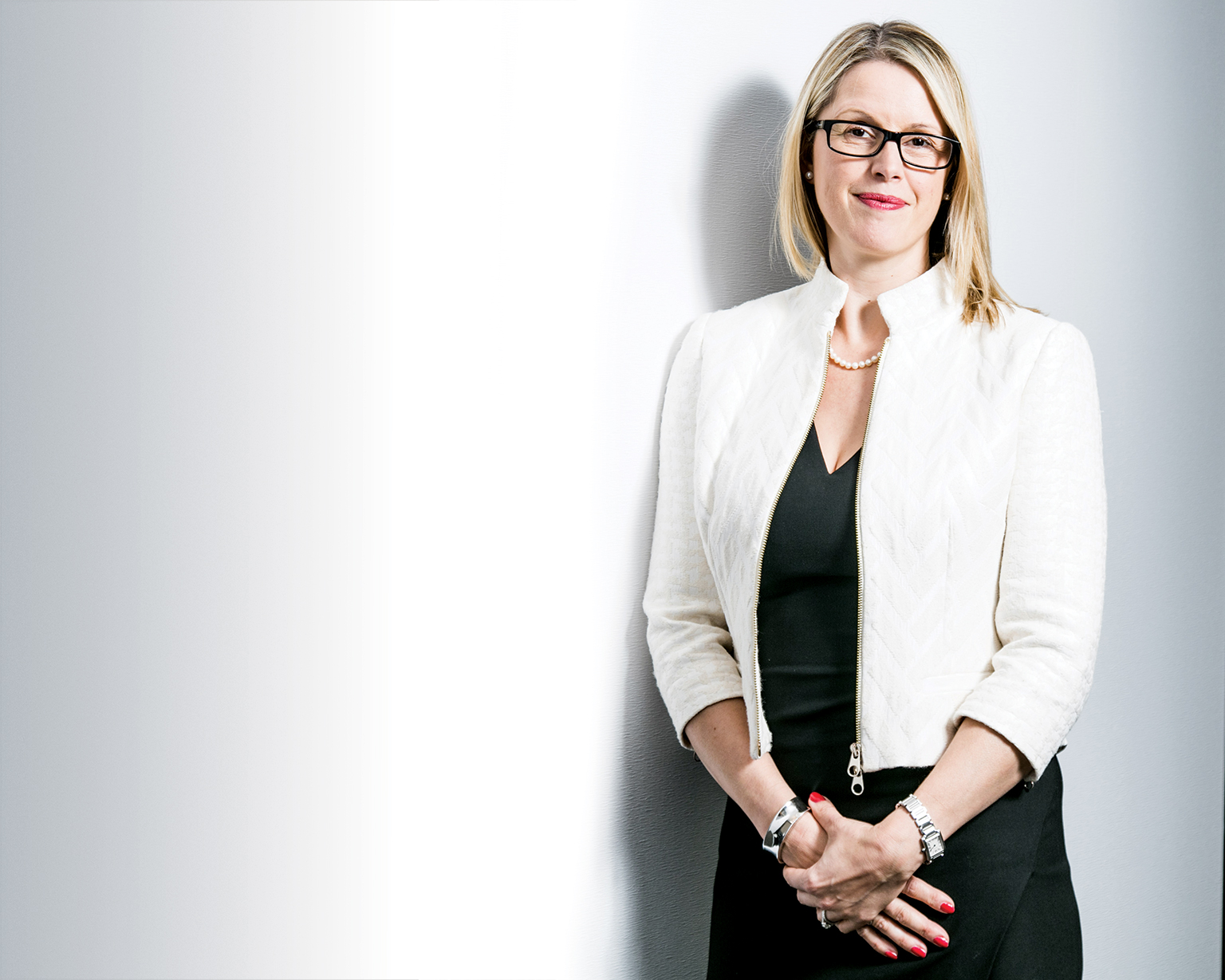The Property Litigation Association has a new chair – Alison Hardy of Squire Patton Boggs. Excited about taking on the role, she spoke with Jess Harrold about the importance of the PLA, her passion for telecoms and her own wish list for law reform.

“We are a group of people who, for a job, fall out with each other – so it’s great to see, when we all get together at our annual dinner, we’re all friends and there’s no animosity.” That camaraderie between professional rivals is, according to Alison Hardy, the primary appeal of the Property Litigation Association. And it’s good to hear that that fellowship is at its very merriest during the social highlight of the PLA’s calendar – not least because, at this week’s dinner, Hardy took her place as the organisation’s chair for the next year.
It’s the latest accomplishment in the successful career of this self-described “Shropshire girl”, whose “varied journey” has taken in university stops in Wolverhampton and Cardiff, as well as early years at firms in Cheltenham and Birmingham. Now firmly established as a property litigation partner at Squire Patton Boggs’ London office, she is exactly where she hoped to be from an early age.
“I was 11 when I knew I wanted to be a lawyer,” she says, citing as influences a barrister cousin and a solicitor uncle, as well as family legal papers that caught her interest. She went on work experience quite young and adds, with a laugh: “I then lacked imagination enough to change my mind!”
A talent for telecoms
Few who know her would accuse Hardy of limited imagination. Indeed, she has more than proved her capacity for innovation and speed of thought with her considerable expertise in the complex and ever-evolving field of telecommunications – an area in which she has been known to share her views with readers of Estates Gazette. Hardy was introduced to the sector back in 2001, during an arbitration involving the Canary Wharf estate, and found the intersection with property law fascinating.
“Telecoms changes all the time,” she says as she describes what has held her interest in the 15 years since. “It has become very much a utility – a necessity – almost as much as electricity. In fact, in one recent study I think it was confirmed that, particularly in Tech City, people saw internet access as more important than electricity. I find that quite amusing, because of course it won’t work unless you have electricity as well, but it seems to be becoming more and more important, from office design through to residential developments. People are looking for smarter properties. They want to walk into their office and have it recognise them. The more people look for this, the more essential telecoms will be.”
And that means plenty of work for lawyers practising in the field: “When I acted for Vodafone for a long period of time, there were a lot of day-to-day problems to solve that enabled them to run their operation. Now I’m on the other side, acting for landowners, and it’s interesting to try to work out how to solve the problem to enable a development to go ahead. That’s quite satisfying.”
A way with wayleaves
Taking a proactive approach to problem-solving, Hardy was on the drafting committee for the standardised wayleave and toolkit put together by the City of London Law Society’s Land Law Committee (see “Law in brief”, EG, 17 September 2016, p91).
So far, take-up is a work in progress, with most operators still sending out their own standard form as their first version of any agreement. “It’s a shame that those operators who spent 18 months of their time investing in it have not wholeheartedly adopted it,” says Hardy. “But I am negotiating one at the minute and the amendments to the wayleave are pretty small. I think it will be adopted more widely, it is just a question of building awareness of it.”
Code concerns
The committee continues to evolve the wayleave and will definitely have to update it if the latest attempt at reform of the Electronic Communications Code, proposed as part of the Digital Economy Bill, comes into effect next year. It is something that Hardy fears will make matters worse for landowners, not better (see “Code reform: better the devil you know?”, EG, 1 October 2016, p92).
“They have been trying to amend the Telecoms Code for years,” she says. “So often it feels like politicians are trying to catch up with technological evolution when actually, by the time they have even understood they are behind, they can’t catch up.”
Hardy takes the view that it is such an innovative area that commercial parties need to be given room to find quicker solutions to tensions as they arise, rather than operating within the constraints of an always outdated Code. “I would definitely allow sophisticated parties to draft out of it,” she says. “The law isn’t fast enough to keep up with what is happening in practice. There is a real problem with over-legislating, and I think commercial parties should be allowed to contract out and do what they want.”
The Property Litigation Association
The tech-savvy Hardy – who reveals her own home broadband is “pretty poor” and she is currently looking to switch providers – has seen her expertise put to good use by the PLA during her involvement over the past decade. She has served as chair of the website and marketing committee since 2012 and is excited to unveil its new website during her year as chair of the body, which boasts 1,200 members.
She values the close support network that the PLA provides: “It helps to feel that you are part of something bigger, because property litigation teams are often quite small. It offers camaraderie.”
That can be particularly valuable for young practitioners, says Hardy. “You often get only one or two junior property litigators in each firm. They can feel quite isolated, they don’t want to ask certain questions of their boss. Having contemporaries at other firms that they can talk to on a ‘friends’ basis makes a really big difference to their development. It also raises their profile and helps with education, because we have specific training that is property litigation-focused.”
She cites the Junior PLA, for those under 10 years qualified, as a major success story. With her background, she is particularly pleased to see it flourishing around the country after thriving in London, and that there is a “growing swell of activity in the regions” in the PLA in general.
Meanwhile, there is lots going on with the PLA’s “hugely busy” law reform committee. As well as having recently given its input to the Law Commission’s consultation on its 13th programme of law reform, the PLA is taking part in the “huge programme for innovation coming down the tracks” from Her Majesty’s Courts and Tribunal Service. Hardy says: “I’ll be pleased to be involved, and will probably learn quite a lot along the way.”
Wish list for change
So, if she were to encounter an oddly law-focused genie, what would be her own personal three wishes for reform? “I wish I had a bigger imagination to talk about things that are not property,” she laughs. “One of the things is agricultural law. I think it needs codifying and bringing up to date. As a normal property practitioner, not dealing with agricultural law on a daily basis, when somebody brings you an agricultural question it’s a terrifying concept because it’s so hard to grasp.
“If my law-focused genie had a budget, I would get them to sort out the court system. I would get them to do things like reopen the counter service at county courts so that people felt like they could go and talk to their court and explain what they wanted. So my genie needs to have quite a big purse.
“And if I was to amend something else, I would probably bring section 196 of the Law of Property Act 1925 up to date, with something more relevant about service of notices. I don’t think the system works particularly well, harking back to the days when the postal service was very different and nobody used e-mail. These days, people still have a need to serve things by fax – well I can’t find my fax machine!”
Living fast
When she is not busy negotiating with telecoms operators, driving reform or leading the PLA, Hardy can often be seen pounding the city streets. Though she no longer competes in marathons, she integrates her passion into her professional life. “I love to run. I run to work or from work, sometimes both. I have fitted it in with site visits in the past – I spotted a rave once when I was out running on a bank holiday, and then evicted them!”
On top of all that, she has even found room for one more recent accolade, as a result of her work on the standardised wayleave. Hardy has been invited to be a freeman of the City of London Solicitors’ Company, and it is something she is very excited about. “I am hoping it will widen my network and give me more opportunity to be involved in charitable work. I can’t quite get to the stage of driving the sheep over London Bridge yet – that’s a couple of steps away. But, as a Shropshire girl, that would be very attractive to me!”
If the talented and driven Hardy does indeed set her sights on the freedom of the City, we don’t bet against it happening – and we promise to be back with a photographer to capture her shepherding moment of glory.
Listen to an interview with Alison Hardy at http://estatesgazette.podbean.com








